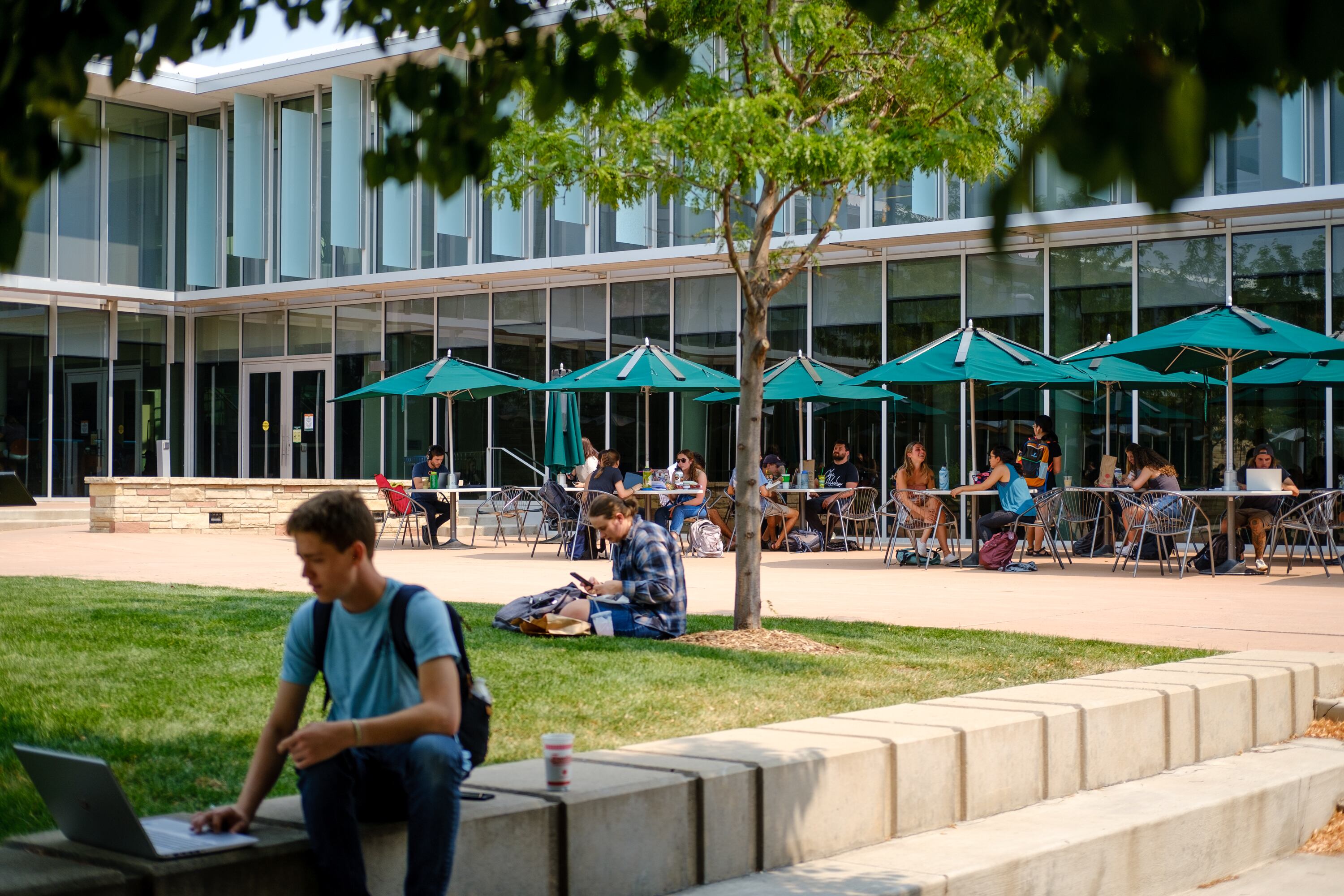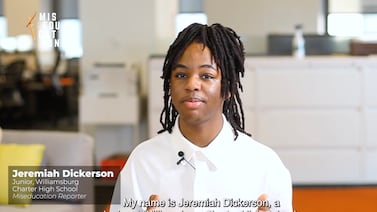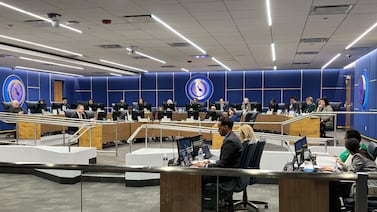Sign up for our free monthly newsletter Beyond High School to get the latest news about college and career paths for Colorado high school grads.
How am I going to pay for college? Often, the inability to answer that question keeps Colorado students from heading to school.
Students, however, rarely pay the sticker price. Instead, there are numerous options for students to get money for school, especially the free programs Colorado offers to help students pay for some credits or college in its entirety.
Here are five tips to help students get money for college:
Take advantage of college programs
Concurrent enrollment. Dual enrollment. Fifth-year high school. Colorado Promise. Career Advance.
There’s a dizzying number of programs to sort through and they can be specific to whether you’re still in high school, enrolled in a certain university, or a particular program. Some pay only for a designated number of college credits. Others pay for your entire college bill.
Concurrent and dual enrollment — Students in high school can enroll in college-level classes while in high school in almost every Colorado district for free. The classes offered by schools can vary from district to district. Some students might attend classes at their high school, take classes online, or go to a college campus. The programs are widespread statewide and meant to help students earn a few credits up to an associate’s degree. On average, most students enroll in about two college classes while in high school. Popular options include introductory courses such as English composition, college algebra, psychology, communication, or business classes.
ASCENT, P-TECH, and early college — ASCENT is a fifth-year option for students to attend college classes while extending their high school education by a year. There are limited slots for students statewide and the fifth year of high school is free to them.
P-TECH is also a less common free option that teaches students more technical skills, such as welding or other trades. While this covers the cost of classes offered at the college level, students might still need to pay for transportation or books.
And early college, offered at a few district and charter high schools, allows students to graduate from high school in four years with an associate’s degree. There aren’t many statewide.
Care Forward Colorado and Career Advance Colorado — Care Forward Colorado offers free training at the state’s community colleges in health care fields, including nursing, phlebotomy, emergency medical technician, and dental assistant.
Career Advance Colorado kicked off this year as an expansion of the health care program. Fields of study eligible for free training include education, law enforcement, firefighting, and early childhood education. Programs in education pay for two years of community college before students move on to a four-year university.
These programs will likely end once money runs out, so it’s a first-come, first-served opportunity.
University promise programs — Some universities across the state, including the University of Colorado Boulder, Fort Lewis College, and Colorado State University Pueblo, offer free tuition to students who qualify for federal financial aid. Each school has eligibility requirements. For instance, CU Boulder recently expanded its promise program to engineering students.
Map out your options
As a high school freshman, college might be the last thing on your mind. And no one is saying you have to have it all figured out at an early age.
Luckily, Colorado schools have guidance counselors that can help students understand what’s next. Talking with a counselor can help students understand what’s available, said Jose Olivo, Denver Scholarship Foundation, director of TRIO Talent Search.
TRIO is a federal program that offers support to students who are low-income, the first to go to college in their family, or who have a disability. The program helps students get college exposure, including financial aid help and assistance preparing for college entrance exams.
The Denver-area foundation helps students figure out their college aspirations, and about 85% of their scholars end up at a four-year university. Olivo said counselors check in with students every year to help build their understanding of college and financial aid.
“We like to practice the approach of, ‘I’m going to provide you with as much information as possible for you to make the best decision for yourself,’“ Olivo said.
Olivo said students get information each year about college.
Freshmen learn about what it would take financially to get to college, including what high school college programs are available, such as ASCENT or concurrent enrollment. Sophomores learn about scholarships, grants, and loans. Juniors get a deeper dive into financial aid and learn about free college programs. And then seniors get help filling out the Free Application for Student Financial Aid, scholarships, and college applications.
Fill out the FAFSA
The cost of attendance at a Colorado community college averages about $5,000 annually for tuition, books, and fees. That price isn’t typically what students pay out of pocket, said Landon Pirius, the Colorado Community College System’s vice chancellor of academic and student affairs.
In actuality, about 60% of community college students leave without any debt thanks to state and federal aid, he said.
“In effect, you can attend any community college program for free for students of a certain income level,” he said.
Students won’t know exactly how much they will pay unless they fill out the Free Application for Federal Student Aid, or FAFSA. The application can be found at studentaid.gov.
The application opens access for federal grants students don’t need to pay back.
Colorado also provides grants to students that help pay for tuition, books, or other fees.
At four-year universities, students can use that money to offset their tuition bill, which varies at institutions. For instance, at the University of Colorado Boulder, the state’s flagship campus, tuition, fees, books, and housing can cost about $31,774 a year for a Colorado resident.
Some immigrant students don’t qualify for federal aid but can still qualify for state aid.
Undocumented students, including those who qualify for Deferred Action for Childhood Arrivals or DACA, can fill out the Colorado Application for State Financial Aid, or CASFA. To be eligible, a student must have lived in Colorado for at least one year before they graduated from high school and at least 12 months prior to enrolling at the college.
The program helps students get access to lower cost in-state tuition, state grants, and work-study opportunity.
Don’t forget about scholarships and grants
Unfortunately, there aren’t enough free programs statewide to help every student.
Seniors, especially, shouldn’t forget that there are numerous scholarships available to pay for college, according to financial aid experts.
Some Colorado-specific scholarships include the Daniels Scholarship and the Boettcher Scholarship. High school counseling offices should also be able to help with a directory of the thousands of national scholarships available, including ones like the Coca-Cola scholarship and the Hispanic Scholarship Fund.
There’s always more help
Students already enrolled in college also can get more scholarships and help through their college, said Olivo. Students also might be eligible for other national scholarships once they declare a major, he said.
“Most schools also have institutional scholarships that give priority to returning students,” Olivo said.
It’s not always a guarantee, Olivo said, but he suggests students speak to campus advisors or the school’s financial aid office if they’re in need.
“I always tell students you have to A-S-K to G-E-T,” he said. “It doesn’t hurt to ask and they might give you something.”
Jason Gonzales is a reporter covering higher education and the Colorado legislature. Chalkbeat Colorado partners with Open Campus on higher education coverage. Contact Jason at jgonzales@chalkbeat.org.






